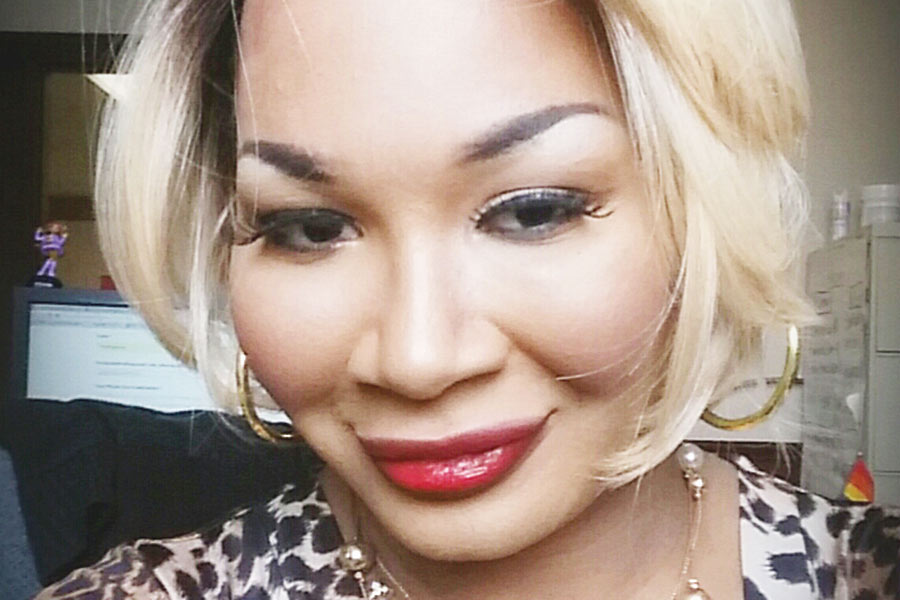Next month, Mazzoni Center will present the 15th annual Philadelphia Trans-Health Conference, which takes place June 9-11 at the Pennsylvania Convention Center. This year we’ve got a diverse and dynamic lineup of approximately 230 workshops for the general track of the conference, which is free to attend.
The Trans Health Conference proudly offers a space for trans people and our allies, families and providers to come together to re-envision what health means for trans people. Over the years, we’ve been thrilled to see the conference grow and evolve to meet the needs of diverse audiences, from youth to seniors, community activists to legal and medical professionals, and so many others.
Many people don’t know what goes into the year-round planning process to make this conference successful. Originally launched as a grassroots gathering in collaboration with Mazzoni Center back in 2002, the Trans-Health Conference became an official Mazzoni Center program in 2006, but has remained very much a community-driven effort.
At the close of each conference (usually in July), our staff meets with planning committee leads, and begins to pore through the thousands of evaluation forms we’ve received. We look at all aspects of the event: accessibility needs, dedicated spaces and diverse audiences, community partners, presenters and much more.
Early in the fall, we schedule a retreat, which is open to anyone, where we begin to work on solutions to any issues we’ve identified. Through social media and email, we invite anyone interested in joining a planning committee to help us work on the conference for the following year. Thanks to modern technology (Facebook, Google groups, conference calls, etc.), people interested in joining and participating in the overall planning committee, or in one of several working groups, are able to do so in a number of ways, and from virtually any location.
Leads for the working groups are also chosen, and they play an important role in many aspects of conference planning, such as: gathering suggestions from working groups for potential keynote speakers, revising mission/purpose statements for each working group and updating the call for proposals that goes out in late fall. Once workshop proposals have been submitted, the committees are responsible for reviewing and evaluating them, and deciding which ones are accepted and placed on the conference schedule.
Our goal is to present a conference that will speak to the needs of the extremely diverse community of trans and gender-nonconforming people who attend the conference every year. We want to offer something for first-time attendees, as well as folks who are returning for the ninth or 15th year.
Over the years, we learned that all groups come to the table in different capacities, and not necessarily in the role of workshop presenters, so we made room for everyone to show up in the ways that were productive and instrumental to the conference. In some cases, it has taken years of intentional conversations and recruitment efforts to bring everyone together. This work is never complete, but we work hard to be as open and inclusive as possible in order to present the best event.
This year we made a concerted effort to focus on our (dis)ability community that attends the conference — whether it be visual, hearing or mobility. To better accommodate these guests, we changed the layout of the main hall to allow for mobility devices, service dogs and attendees who may need more time to get from point to point. We’ve added EMT service, crisis-intervention training, as well as a designated “Quiet Zone” for those who may need a safe, calm space to regroup.
We continue to seek input from attendees and community members on ways to improve the Trans Health Conference and make it as inviting and inclusive a space as we can.
Among this year’s highlights will be our lively and diverse line of plenary speakers. Thursday’s plenary will address “Heritage/Celebrating our History and Ancestors,” while Friday’s focus is “Legacy/What Does It Look Like When We Win.”
We’re also proud to be presenting the inaugural Charlene Arcila Pioneer Award, named in memory of the much-admired community activist who was one of the original founders of the conference back in 2002.
There are also great evening events, including the Opening Reception at Voyeur on June 9 and the Friday Shabbat Dinner. This year we’re excited to present ASCENSION: A Concert in the Park on June 10 from 6-8 p.m. in Thomas Paine Plaza, which is sponsored by Trans Women of Color Collective (TWOCC), the Mayor’s Office of Philadelphia and the Leeway Foundation.
Whether you are a trans or gender-nonconforming person, a loved one or family member, service provider or an ally who wants to learn more, we hope we’ll see you at this year’s Trans-Health Conference. We’d also love to hear your feedback after the event!
Full details and registration for the 2016 Trans-Health Conference: www.trans-health.org.
Samantha Dato is the Trans-Health Conference Coordinator for Mazzoni Center.
